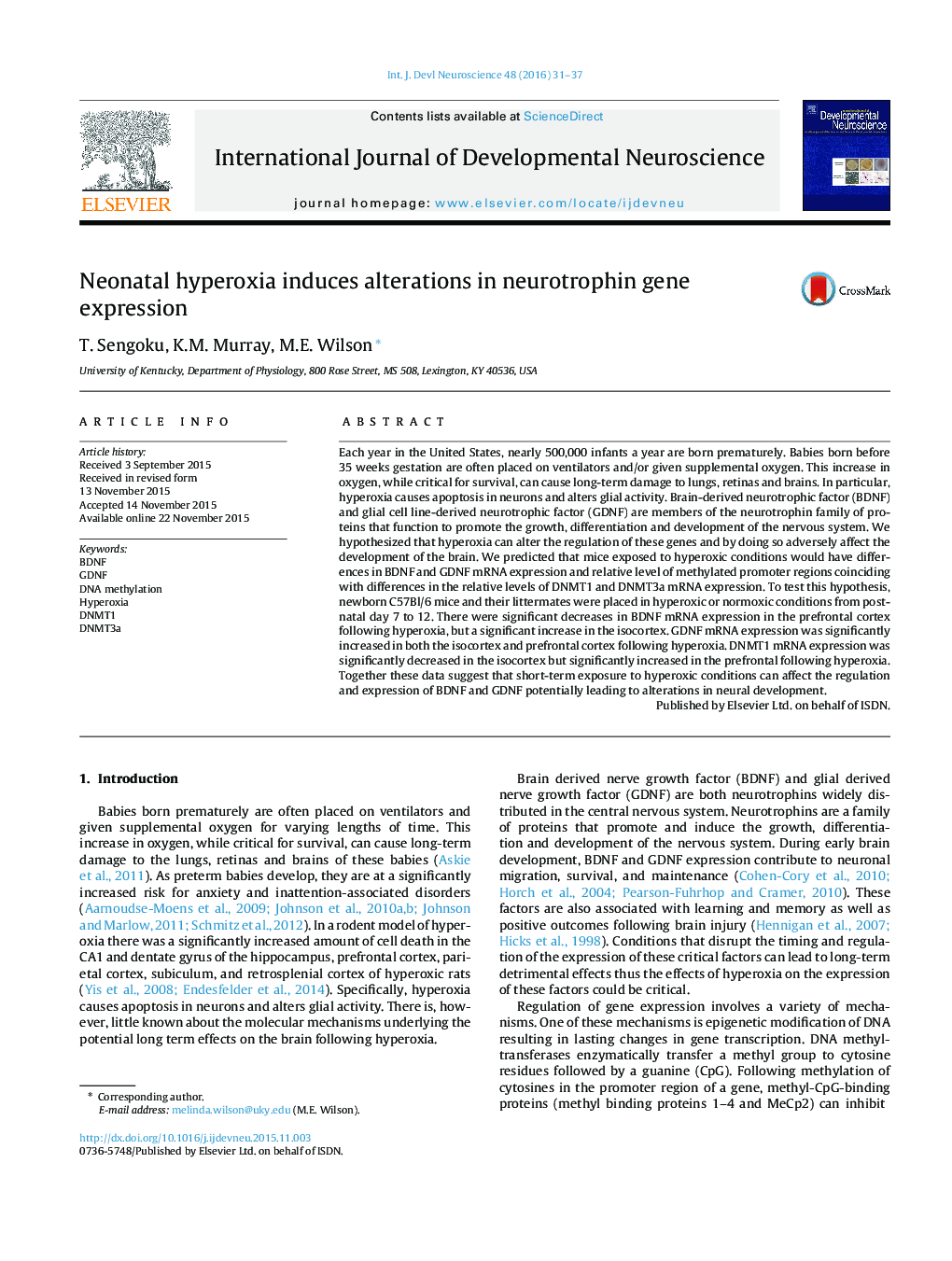| Article ID | Journal | Published Year | Pages | File Type |
|---|---|---|---|---|
| 2785630 | International Journal of Developmental Neuroscience | 2016 | 7 Pages |
•Neonatal hyperoxia alters gene expression in the brain.•Neonatal hyperoxia may alter epigenetic mechanisms.•Different areas of the brain respond differently to neonatal hyperoxia.
Each year in the United States, nearly 500,000 infants a year are born prematurely. Babies born before 35 weeks gestation are often placed on ventilators and/or given supplemental oxygen. This increase in oxygen, while critical for survival, can cause long-term damage to lungs, retinas and brains. In particular, hyperoxia causes apoptosis in neurons and alters glial activity. Brain-derived neurotrophic factor (BDNF) and glial cell line-derived neurotrophic factor (GDNF) are members of the neurotrophin family of proteins that function to promote the growth, differentiation and development of the nervous system. We hypothesized that hyperoxia can alter the regulation of these genes and by doing so adversely affect the development of the brain. We predicted that mice exposed to hyperoxic conditions would have differences in BDNF and GDNF mRNA expression and relative level of methylated promoter regions coinciding with differences in the relative levels of DNMT1 and DNMT3a mRNA expression. To test this hypothesis, newborn C57Bl/6 mice and their littermates were placed in hyperoxic or normoxic conditions from postnatal day 7 to 12. There were significant decreases in BDNF mRNA expression in the prefrontal cortex following hyperoxia, but a significant increase in the isocortex. GDNF mRNA expression was significantly increased in both the isocortex and prefrontal cortex following hyperoxia. DNMT1 mRNA expression was significantly decreased in the isocortex but significantly increased in the prefrontal following hyperoxia. Together these data suggest that short-term exposure to hyperoxic conditions can affect the regulation and expression of BDNF and GDNF potentially leading to alterations in neural development.
